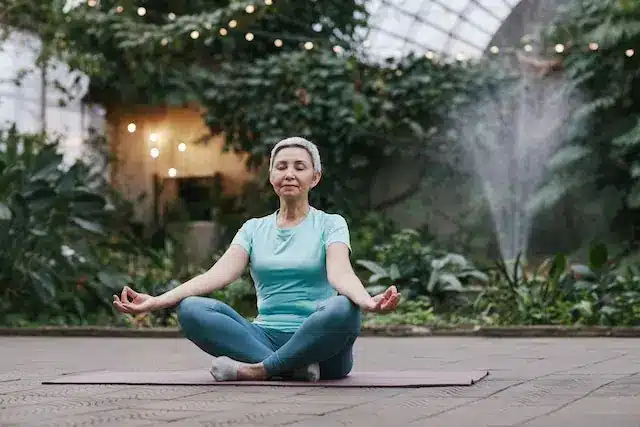
7 Health and Wellness Tips for Veterans
According to the U.S. Census Bureau, approximately 16.5 million veterans lived in the country in 2021. These people have bravely and honorably served their nation. Often risking their lives to defend the liberties we all take for granted. However, transitioning from military service to civilian life can be difficult. Many veterans experience problems with their emotional, mental, and physical well-being. Thankfully, many resources and methods exist to assist veterans in living the best lives possible after their service. This article will look at some of the best health and wellness tips for veterans.
1) Seek Support
Numerous kinds of health problems, such as stress, depression, and anxiety, affect veterans. It may be difficult to retain good health and adapt to civilian life due to these challenges.
Plenty of resources are available to assist veterans in overcoming these obstacles. Veterans can get assistance from community organizations, peer support groups, and mental health experts to manage their symptoms and stay healthy.
Veterans who have received a mesothelioma diagnosis due to asbestos exposure while serving may also be eligible to apply for financial assistance through mesothelioma trust funds. Asbestos was frequently employed in military buildings and weapons.
Veterans diagnosed with mesothelioma and other asbestos exposure victims are eligible for compensation through mesothelioma trust funds. Current and future victims with legitimate mesothelioma fund claims can make use of these trust funds.
Working with a professional mesothelioma lawyer who can help you navigate the procedure is essential to pursue compensation through a trust fund. To assist you with getting started, you can also view a list of trust funds online.
2) Stay Active
Regular physical activity can help improve physical fitness, boost mental health, reduce stress, and lower the risk of chronic diseases. Veterans may struggle to maintain an active lifestyle due to physical limitations or injuries sustained during service. However, there are many exercises and activities that can be adapted to suit their needs, such as swimming, cycling, or yoga. Additionally, many veterans may find the camaraderie and structure of group fitness classes or sports teams beneficial for their mental and emotional well-being. Regular physical activity can also give people a feeling of achievement and purpose, which is crucial for veterans adjusting to civilian life.
3) Eat A Balanced Diet
Your body requires protein, carbs, nutritious fats, vitamins, and minerals to work effectively, and a balanced diet ensures it gets all of these components. A balanced diet might be even more crucial in assisting veterans who may have had physical or emotional trauma while serving to recover and preserve their overall well-being. While supplying the energy required for daily activities, a diet high in veggies, whole grains, fruits, and lean protein can help minimize inflammation and support healing. A healthy diet can also aid in preventing chronic illnesses like heart disease, which affect veterans more frequently than the general population.
4) Get Enough Sleep
Adequate sleep can lower stress and enhance physical and mental function by allowing the body to repair and recover. Adults are advised to strive for 7-8 hours of sleep a night. However, many veterans might have trouble sleeping well. To improve sleep quality, veterans can establish a consistent sleep schedule, avoid caffeine before bedtime, create a relaxing bedtime routine, and avoid screens for at least an hour before bed.
5) Stay Up To Date On Medical Screenings
Medical screenings can include blood pressure checks, cholesterol tests, and diabetes screenings, among others. Depending on a veteran’s age, gender, and medical history, additional screenings may be recommended by their healthcare provider. Staying current on medical screenings is particularly important for veterans who may have been exposed to various environmental hazards during their service.
For example, veterans may be at higher risk for hearing loss or respiratory problems due to exposure to loud noises or hazardous chemicals. Veterans can assist in maintaining their health and make sure they are getting the treatment required to stay fit and well by staying informed on prescribed medical tests and following up on them.
6) Connect With Others
Veterans who return to civilian life may experience particular difficulties, such as finding jobs or returning to their communities. Mental health conditions like PTSD and depression might make these difficulties worse. Veterans should therefore create a support network of friends, family, and other veterans. It can involve:
- Joining community organizations or support groups
- Taking part in group activities or other gathering exercises
- Simply reaching out to old friends or family members
By connecting with others, veterans can feel less isolated and more supported, which can help improve their mental health and overall well-being. Furthermore, connecting with others can present opportunities for socializing and participating in fun activities, reducing stress.
7) Spend Some Time Outside
The advantages of being outside are numerous:
- It has been demonstrated that spending time in nature lowers stress levels, which is crucial for people who may have gone through terrible experiences while serving in the military. An increase in mood and a decrease in anxiety and depression have been associated with spending time in nature.
- Moving outside and exercising can enhance general physical health, which is crucial as veterans age. Low-impact exercises promoting joint fitness and mobility include riding and gardening. In particular, mushroom gardening can offer a unique and rewarding experience. Not only does it provide physical exercise but also the satisfaction of growing your own food.
- Being outside may provide a feeling of connectivity to the natural environment and an escape from the hustle and bustle of daily life, which can be especially helpful for people who may be struggling with problems like sleeplessness or exhaustion.
Read More: How to Create a Support Systems for Mental Health
Conclusion
Maintaining good health and wellness is essential for veterans to enjoy a fulfilling life after serving. With the unique challenges veterans face, it is crucial to prioritize physical, mental, and emotional health. Veterans can achieve this through a balanced diet, regular exercise, proper sleep, and seeking support when necessary. The journey to good health may not be easy, but veterans can overcome obstacles and live their best lives with commitment and dedication. By implementing the health and wellness tips discussed in this blog, veterans can take control of their health and well-being and lead a happy, healthy life.


